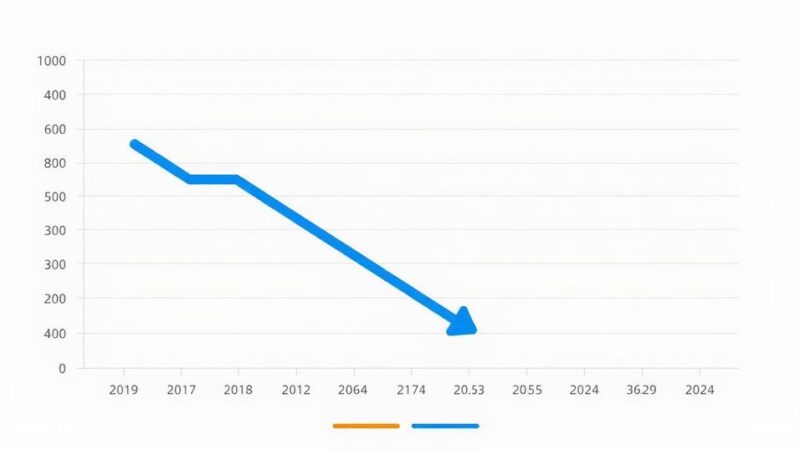Angola is in talks with the IMF about potential financial assistance due to soaring bond yields and an oil slump affecting its market access. Finance Minister Daves de Sousa stated they are evaluating options but have not formally requested aid. With bond yields reaching 13.5%, Angola is considering other loans and asset sales to manage its fiscal situation as it faces increasing debt repayment obligations.
Angola is exploring financing options through the International Monetary Fund (IMF). Finance Minister Vera Daves de Sousa confirmed that discussions occurred last week amid trade wars and declining energy prices severely limiting the country’s access to international bond markets. The finance minister attended the IMF-World Bank Spring Meetings in Washington, noting, “We didn’t ask it formally — we were just trying to understand and explore what financial options we can have.”
When proposals arise from the IMF, Sousa plans to consult with both the government and President Joao Lourenco before determining whether to submit a formal financing request. Meanwhile, Angola’s dollar bonds showed some resilience, with yields on 2048 bonds decreasing to approximately 13.05% earlier Monday, marking a rare bright spot for emerging markets.
The southern African nation is approaching a critical period for loan repayments, focusing its fiscal resources predominantly on servicing debt and covering salaries. This year, Angola faces an $864 million bond maturing in November, stressing the country’s budgetary needs amid rising obligations.
Despite its challenges, Angola has engaged in two previous IMF programs since emerging from a civil war in 2002, with the latest being a $3.7 billion extended fund facility established in 2018. In addition to potentially receiving IMF aid, Angola is weighing loans from the World Bank and African Development Bank as alternatives to entering the volatile international debt market.
The finance minister highlighted the government’s ongoing efforts to reduce financing needs by signaling a commitment to tight expenditure management, stating, “We will continue exploring those avenues and we will squeeze.” Sousa expects the nation to bypass international debt markets “most likely” until yields return to single digits.
Gone are the previous ambitions in February to raise $1.5 billion in bonds over the next two years, as soaring yields on Angola’s dollar bonds, now averaging 13.5%, place them among the highest in the world. The difference relative to US Treasuries—930 basis points—is nearing the 1,000 basis point threshold considered to indicate distressed financial conditions.
Despite a rebound in the economy last year, Angola’s dependency on oil remains substantial. Oil exports account for nearly all foreign revenue and 60% of governmental income. Recent declines in Brent crude prices, which have dropped 10% this year to below $67 a barrel, have significantly influenced projections for economic growth, fueled by fears of a slowdown from new tariffs imposed by the US on numerous countries.
To manage the fiscal implications of lower oil prices, Angola has prepared a stress analysis indicating that maintaining oil prices around $55 could allow the government to balance its budget with some expenditure adjustments. The current budget calculation is predicated on an oil price of $70.
In an effort to shore up its finances, the government plans to finalize sales of significant stakes in major companies, including Unitel SA, Banco de Fomento Angola SA, and Standard Bank de Angola SA by year’s end, hoping to bolster revenues as financial strains mount.
In summary, Angola seeks to explore various financial assistance options while navigating significant economic challenges. With dependence on oil revenue and high bond yields, discussions with the IMF reflect a proactive approach to future financing. The goal to streamline expenditures alongside potential asset sales might help stabilize fiscal conditions, as the country prepares for upcoming bond repayments. Any formal move towards an IMF program will require careful consideration and approval by Angolan leadership in the coming months.
Original Source: financialpost.com






